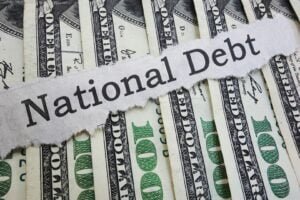(1) In our last article on the Warren Wealth Tax and how it could be better and more sensibly applied–We made the following proposition and observation>>
(2) The Wealthy Corporations—their products (cars, computers, just about anything you can think of) can only operate as a result and ONLY BE SOLD if there’s a properly functioning Infrastructure (roads, bridges, electrical grids and the like.) If there’s going to be a Wealth Tax, why not apply the levy of such a tax to something that’s related to the use of all these products being sold and which otherwise could not be utilized but for a well-developed and maintained Infrastructure. Therefore, following this apportionment of product-use by product end-user and product-originator/manufacturer, it is only fair that what the per capita tax is per individual taxpayer for any infrastructure expenditure-cost, it should also be shared and matched by businesses both domestic and non-domestic (i.e., foreign corporations selling their imported product-goods here (cars, computers, cellphones, etc.)) and also multiplably compounded thusly for each item-sale put into use into our Infrastructure by every manufacturer-supplier-seller in the overall “delivery” chain of any one particular product-good. Now here’s a “twist” to the Warren Wealth Tax>>
(3) Instead of taxing corporations to fund governmental spending and Our Annual Budget require such entities to purchase, with a percentage of their profits, U.S. Treasury Bonds. This way you could also include foreign corporations (which account for 16% of total sales in this country) to purchase Treasury Bonds as well. Furthermore, these Bond Sales would be in the Trillions of Dollars, far–way far more than any taxing would produce. This is especially important where projects that need to be undertaken such as with major Infrastructure renovation and improvement which have NOT begun; i.e., where startup costs for these proposed projects are costly and needed first before any construction work can begin. And with interest rates so low now, this would be the perfect time to do it–to “float” Bond Sales for such startup costs! That is, the annual yield-servicing of this bond debt would be almost next to nothing especially if you take into account the built-in inflationary cost-of-living depreciation rate of the dollar being approximately 1.6% per year. That is, we’d be paying back the original dollars borrowed/loaned via these bond sales with dollars less in actual value because of this aforementioned, built-in depreciation any economy experiences with its currency over a period of time. OR How ‘bout this>>>
(4) Give domestic corporations, wealthy individuals the option of paying this wealth tax or purchasing bonds or a combination thereof–some taxes with bonds say of a shorter or different maturation period. And for foreign corporations—Bonds or a tariff and with the same option—less on tariffs with bonds of a different, preferred or graduated maturation. However, tariffs should be used sparingly as to not “spark” another trade war. And again, the tax, tariffs and/or bonds would ONLY BE USED FOR INFRASTRUCTURE, COMMERCE-RELATED OR PROTECTION OF COMMERCE EXPENSE COSTS!
(5) Now, if corporations, foreign or domestic, opted for bonds, these bonds, if not wanted, could easily be resold for immediate cash on what would become, the likes and scope of which we’ve never seen before, a secondary bond market similar in size and dimension to the secondary mortgage market we now have OR The Fed could buy back their own bonds at a discounted price and actually, at the same time, retire debt. And>>
(6) If foreign corporations wanted to “cash in” their bonds to be used as venture capital in their own country or in other countries they could use these U.S. Treasury Bonds—dubbed “the safest safe-haven investment in the world” as collateral or in exchange for the currency of that particular country to fund whatever projects they had in mind. Say Toyota wants to build a plant or dealership in Indonesia, they simply take their U.S. Treasury Bonds to any Indonesian Bank, get Indonesian currency to hire an Indonesian construction company to build this plant or dealership. What bank in the world would refuse U.S. Treasury Bonds—“the safest safe-haven investment in the world”—as collateral or in exchange for the currency of that particular country to fund whatever projects a business had in mind?? Also>>
(7) By this bond purchase requirement, in addition to the Government now having funds to cover any projected deficit spending which we are running with shortages approaching a trillion per annum, and I know we should have a balanced budget but we don’t–the sales of these extra bonds would be preferable versus expanding the federal balance sheet where such would or could possibly lead to the devaluation of The Dollar itself which most definitely would be counterproductive if you’re now requiring the mandatory purchase of U.S. Treasury Bonds as a (cost) requirement of doing business here in the United States. This is especially so since interest rates now being at such a historical low that with any unnecessary devaluation of The Dollar (in addition to any inherent built-in cost-of-living depreciation) would mean bondholders, in actuality, would have a near Zero Yield!
(8) Remember we want these Bonds to expand our available cash base for our annual budgetary needs!! And to make the purchase of Bonds a Requirement it must make economic sense to those that this requirement is being imposed upon. Furthermore, by henceforth, instituting a mandatory bond sales requirement as a cost of doing business for both domestic and foreign business entities, this, by itself, would have the virtue of keeping interest rates low. Why??
(9) Because The Fed would rarely, or less frequently at the very least, have to conduct auctions for any needed governmental expense cash flow demands as to do such would mean The Fed would or may very well have to raise interest rates to compete for available capital and stock market equity investment options if not but for this mandatory bond purchase requirement and would be in a quandary if forced to make that decision as the value of those bonds already sold (and purchased) pursuant to the now imposed cost-of-doing-business here requirement would go down in value and could very well be considered to be a breach of good faith by those bondholders and deter future purchases of said bonds.
(10) Also, as a very important aside, by having this bond purchase requirement with respect to foreign corporations, this would lessen outflow of dollars from the U.S. Economy making these dollars instantly available to the Government—i.e., the public sector thereby reducing the necessity of seeking same from the private sector for the funding of its many diverse and necessary programs and obligations. This would have the ancillary effect of keeping more dollars in the private commerce, consumer sector for business maintenance, renovation and expansion and higher wages and more hiring thereby putting more spending dollars back in the hands of the working public to purchase yet more consumer goods thereby increasing production of those now additionally consumed products in turn creating more jobs and higher wages keeping Unemployment at the historical lowest levels we are experiencing now.
IN CONCLUSION
In conclusion, the best and fairest way to allocate this Infrastructure Tax would be upon—what else—the proportional (actual personal (singular use by the consumer) and (end) product use compounded through the many sales of (the total number of sales of) ALL products being sold utilizing Our Infrastructure in any way, shape, or form. This Tax to be assigned and apportioned to all manufacturers, wholesalers, and retailers (in a product’s supply chain) employing and BENEFITTING FROM Our Infrastructure, anything else (including all administrative procedural mechanisms (governmental or otherwise)) facilitating Commerce, and any Commerce related Protection apparatus-activities (such as Homeland Security and also Globally, Overseas (for example, the use of the military in protecting shipping lanes and other assets including foreign if beneficial to Our Economy)–basically anything connected or related to Commerce–GDP (Gross Domestic Product) and GNP (Gross National Product).




